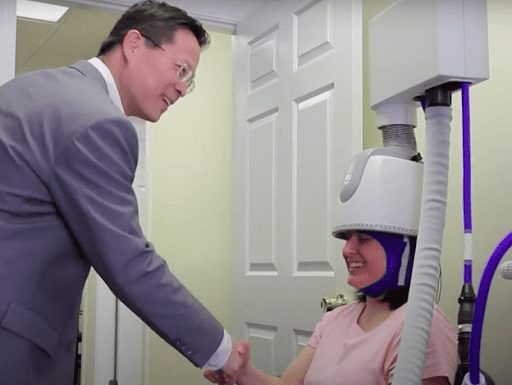Overview
While TMS has been hailed as one of the most revolutionary treatments for a number of mental disorders, it has proved to be not so in the case of some. Though many reported relief, a darker side exists wherein TMS has led to unforeseen and debilitating consequences.
This article will outline the personal toll that TMS can take by underlining its risks, lasting effects, and broader implications for mental health treatment.
Basic Understanding of TMS
TMS works through the principle of non-invasive stimulation of magnetic fields on the brain’s nerve cells, especially those areas related to mood regulation. It has widely been used in treating various conditions such as depression, anxiety, and obsessive-compulsive disorder. It generally consists of repeated sessions during which electromagnetic pulses are thrown at given areas of the brain.
Whereas it has been advertised as safe and effective, it does not sit well with every patient. There have been instances of TMS inducing serious and long-term side effects that counterbalance the benefits intended to come with the treatment.
Unforeseen Consequences of TMS
Physical Side Effects
Though referred to as non-invasive, TMS can cause any of the following physical symptoms:
- Headaches: Many complain of continuous headaches, starting with the treatment and continuing long after the sessions are over. The headaches disrupt daily life and make it hard to focus or do regular things.
- Neurological Sensitivities: Some start developing sensitivity to light, sound, even touch, which makes real life increasingly difficult to confront.
- seizures: seizures are indeed documented risks of TMS, and such eventualities carry profound implications for the individual in terms of quality of life.
Cognitive and Emotional Turnmoil
- Memory Loss: Some have problems with short-term memory or holding onto information, which affects their personal and professional lives.
- Increased Anxiety: Ironically, the treatment intended to reduce anxiety has at times increased the same. There have been reports of episodes of nervousness, at times amounting to panic attacks.
- Emotional numbing: a phenomenon quite disturbing: patients may feel disconnected with the world around them, people who are close in proximity to them, and even to their own self, leading eventually to feelings of isolation.

Psychological Repercussions
TMS does not affect the mind physically or cognitively. The psychological burden of having to face adverse outcomes may be overwhelming. Many have feelings of regret, frustration, and even betrayal as a treatment to heal caused harm in the process.
- Erosion of Trust: The promise of TMS as a “safe” alternative leads too many into unwavering trust in its efficacy. When results fall short-or worse, cause harm-this is sometimes irreparably damaging for trust in treatments to come.
- Hopelessness: TMS complications in mentally vulnerable individuals can further deteriorate their state of despair and make the perception of recovery even more unreachable.
- Social Withdrawal: The aftermath of dealing with TMS is most often characterized by withdrawal from loved ones, either due to physical symptoms or the emotional struggle.
Wellbutrin for Anxiety | A Comprehensive Guide
How to Dissolve Bone Spurs Naturally
A Personal Journey of TMS
Consider the person who tried TMS as a last attempt when their depression had resisted medical treatment. The only improvements were minor after taking initial sessions, but throughout the treatment, serious pounding headaches and emotional instability could be felt.
At the post-treatment stage, by the end of the courses of therapy, they met crippling anxiety, cognitive difficulty, and a feeling which they describe as being aside from their life. The trust in local interventions was broken, and that set him aside from further approaching medical help.
The Lack of Informed Consent
Perhaps one of the most worrisome features of TMS is the scant attention to possible risks in the consent process. Patients are often given optimistic statistics, with little or no discussion of adverse effects. This lack of transparency leaves individuals unprepared for possible complications and unsure of how to seek recourse when things go wrong.
Calls for More Regulation and Accountability
The growing number of individuals reporting negative experiences with TMS highlights the need for:
- Comprehensive Risk Communication: Providers should be transparent, providing a fair balance of information on benefits and potential risks.
- Ongoing Monitoring: Follow-up care after treatment should be mandatory in order for the early detection and, if possible, reduction of unwanted side effects.
- Stricter Regulation: It is also important that regulatory bodies impose stricter standards on the practice of TMS and ensure that practitioners maintain the highest standards.
TMS alternatives
Those skeptical about TMS, or recovering from its ill effects, might want to explore other forms of therapies. Some of the available alternatives include:
- Psychotherapy: Cognitive Behavioral Therapy has been a very effective evidence-based practice for treating many disorders affecting mental health.
- Medication Adjustments: Many times, working with a psychiatrist to find the right ‘mix’ of medications can prove effective without needing invasive procedures.
- Lifestyle Interventions: Regular exercise, mindfulness practices, and a healthy diet may be incorporated to bring considerable change in mental well-being.
Conclusion
But while it has given hope to many, it is not without its share of risk and complication. For those whose life courses were disrupted by the treatment, it serves as a critical reminder that no medical intervention will go absolutely without downsides. Improved openness, increased oversight, and alternative options are all basic steps that must be followed to ensure that treatments such as TMS truly benefit every patient.
